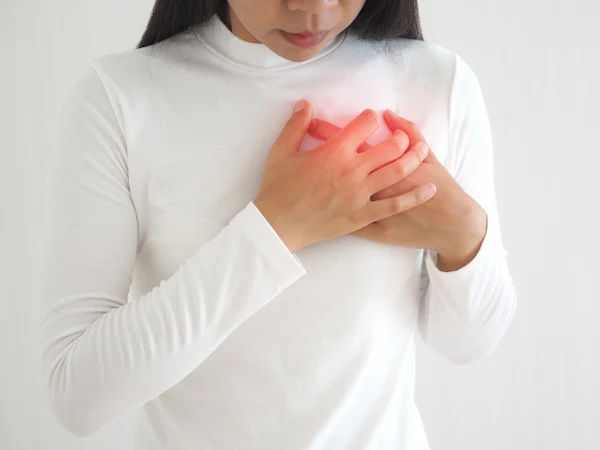- Female
- 31 Years
- 22/01/2025
I'm really concerned because I just found out I have a non-specific T wave abnormality and my blood pressure is pretty high. Is this something I should be worried about? Can I continue with my current treatment, or do I need to consider changing it?
Answered by 1 Apollo Doctors
Non specific T wave abnormality with high blood pressure can be concerning, as it may indicate underlying heart issues. It is important to monitor your blood pressure regularly and follow up with your healthcare provider for further evaluation. In terms of treatment, it would depend on your overall health condition and the specific medications you are currently taking. If you are already on medication for high blood pressure, your doctor may adjust the dosage or add additional medications to better control your blood pressure and reduce the risk of complications. It is important to follow your doctor's recommendations for treatment and lifestyle modifications to manage your condition effectively.
Dr. Anshul Suggests...
Consult a Cardiologist
Answered 04/07/2025
0
0

More Cardiology Health Queries
View allI'm getting this bubble feeling in my chest and it makes me feel nervous whenever it happens. It mostly occurs when I really focus on it. Is this something to worry about? Should I be concerned or do something about it?
It sounds like you may be experiencing symptoms of anxiety. To help with the bubble feeling in your chest and nervousness, you can try taking lorazepam as needed. This medication can help calm your nerves and rduce the physical symptoms of anxiety. Remember to consult with your healthcare provider before starting any new medication.
Answered by 1 Apollo Doctors
All three arteries are blocked at 90, 80, and 80. We're trying to avoid bypass surgery would stenting work in this case? If successful, how long can we expect the stents to last before needing another procedure?
For triple-vessel disease with high blockage, bypass is more durable than stents. Stents may offer short-term relief but restenosis is a risk. A cardiac surgeon should evaluate case specifics.
Answered by 1 Apollo Doctors
I'm really worried about my blood pressure because even though I'm taking telma 40, austin cv, and dilgem 90 at night, my bp still isn't under controlit's currently 13797 with a pulse rate of 108. I also discovered I have a 2-80 block in my angiography, though my ECG seems normal. What should I do, and should I be concerned about anything else?
Your current blood pressure reading of 13797 is still elevated, especially with a pulse rate of 108. Since you have significant blockage in one of your coronary arteries, it is important to manage your blood pressure effectively. I recommend adding a calcium channel blocker to your current medication regimen. You can ask your doctor about adding a medication like Amlodipine (brand name Norvasc) 5mg once daily to help lower your blood pressure. Additionally, lifestyle modifications such as reducing salt intake, regular exercise, and stress management can also help in controlling your blood pressure.
Answered by 1 Apollo Doctors
Disclaimer: Answers on Apollo 247 are not intended to replace your doctor advice. Always seek help of a professional doctor in case of an medical emergency or ailment.



